Search
Search Results
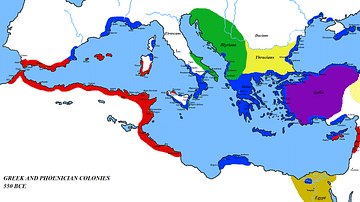
Definition
Uat-Ur
Uat-Ur was the ancient Egyptian name for the Mediterranean Sea (also known as Wadj-Wer) and is translated as 'the Great Green'. Uat-Ur was understood as a living entity imbued with the spirit of the divine which, like all other aspects of...

Video
Chomsky-Foucault Debate on Power vs Justice (1971)
A few clips of Noam Chomsky and Michel Foucault discussing justice, power, and the notion of human nature in their famous 1971 debate. This is a version of an upload from the previous channel. The translation is my own, although I referenced...

Image
Judean Pottery
Pottery Dining & Serving Vessels, 9th-6th Century BCE, Arad.
Israel Museum
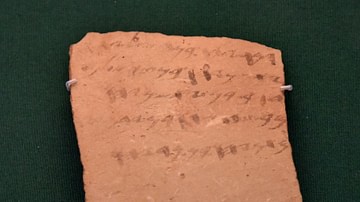
Image
Lachish Letter I
This is Lachish Letter I, a pottery ostracon with Hebrew inscription. This ostracon is probably a fragment of a wheel-made storage jar. The so-called "Lachish Letters" are documents consisting of potsherds inscribed in black ink (known...
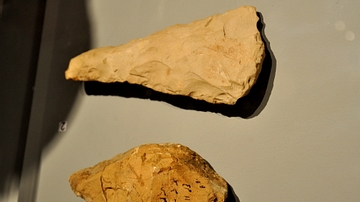
Image
Hand Axe and Stone Tool
These were found in Barda Balka and are considered the oldest human-made artifacts among the whole museum's collections. Circa 100,000 BCE, from Barda Balka (near modern Chamchamal, Sulaimaniya Governorate, Iraq). (The Sulaimaniya Museum...
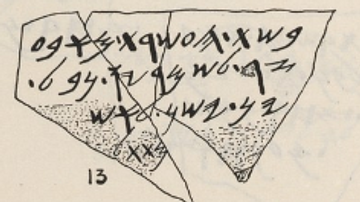
Image
Samarian Ostracon 13
A facsimile of an ostracon discovered at Samaria, dating to the 8th century BCE. The writing is ancient Hebrew.
George Andrew Reisner. Harvard Excavations at Samaria, 1908-1910. Cambridge: Harvard University Press, 1924.
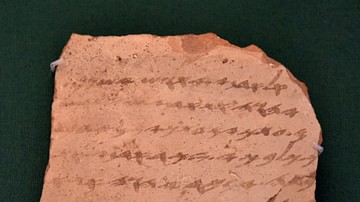
Image
Lachish Letter II
This is Lachish Letter II, a pottery ostracon with Hebrew inscription. This ostracon is probably a fragment of a wheel-made storage jar. The so-called "Lachish Letters" are documents consisting of potsherds inscribed in black ink (known...
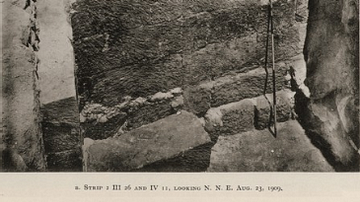
Image
Archaeological Remains of Samaria
A picture from the archaeological site of Samaria. In the image are the archaeological remains of an Israelian settlement. Image was taken in 1909 CE. George Andrew Reisner. Harvard Excavations at Samaria, 1908-1910. Cambridge: Harvard...
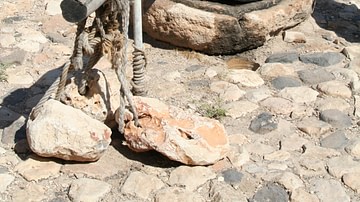
Image
Oil Press, Tell Hazor
Reconstructed 8th-century BCE olive oil press at Tell Hazor.

Article
Trade in the Roman World
Regional, inter-regional and international trade was a common feature of the Roman world. A mix of state control and a free market approach ensured goods produced in one location could be exported far and wide. Cereals, wine and olive oil...